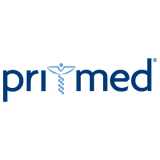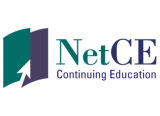HSC Center for Older Adults: 2023-25 Addressing Depression in the Context of Age-Friendly Care

Major depressive disorder comes under the "M" of Mentation of the Age-Friendly Health System model. This activity will discuss suicidal epidemiology, assessment, and treatment for Major Depressive Disorder.
Category
- Depression
Format
- Self-study / Enduring
Credits
- 1.00 ACPE Pharmacy
- 1.00 AMA PRA Category 1 Credit™
- 1.00 ANCC
- 1.00 AOA Category 2-B
- 1.00 Association of Social Work Boards (ASWB)
Diabesity: Confronting the Dual Epidemic of Diabetes and Obesity

This session will delve into the intersection of obesity and type 2 diabetes. Learners will explore strategies for glycemic and weight management, cardiorenal protection, and cardiovascular risk mitigation, with an emphasis on the latest guidelines for managing type 2 diabetes and providing holi
Category
- Diabetes Mellitus (DM)
- Weight Management
Format
- Self-study / Enduring
Credits
- 1.00 AANP Contact Hours
- 0.25 AANP Pharmacology Contact Hours
- 1.00 AMA PRA Category 1 Credit™
Depression and Suicide

Depression is a common, debilitating mood disorder. Depression is highly prevalent in medically ill populations, and many persons with depression are either unaware they need professional help or are reluctant to seek it.
Category
- Depression
Format
- Self-study / Enduring
Credits
- 2.00 AANP Pharmacology Contact Hours
- 15.00 AMA PRA Category 1 Credit™
- 15.00 ANCC
- 15.00 Association of Social Work Boards (ASWB)
A 57-Year-Old Man with T2DM, Obesity, Hypertension, CKD, and a Family History of ASCVD

Through this patient case, you’ll gain valuable knowledge on how to avoid therapeutic inertia when treating people with type 2 diabetes mellitus (T2DM) and comorbid conditions. Come away with strategies for creating treatment plans that fully consider your patients’ needs.
Category
- Diabetes Mellitus (DM)
- Hypertension
Format
- Self-study / Enduring
Credits
- 0.45 AANP Contact Hours
- 0.50 AMA PRA Category 1 Credit™
Bridging the Gap: Emotional and Cultural Intelligence in Clinical Practice

The most productive companies in the world stress the importance of both emotional and cultural intelligence in their leaders. We will look at applying these principles to patient care as a way to improve adherence, quality outcomes, and clinician success. The key is self-awareness.
Category
- Cultural Competency
Format
- Self-study / Enduring
Credits
- 1.00 AANP Contact Hours
- 1.00 AMA PRA Category 1 Credit™
Clone of Domestic Violence: The Kentucky Requirement

Because of the number of individuals affected, it is likely that most healthcare professionals will encounter patients in their practice who are victims/survivors of domestic violence.
Category
Format
- Self-study / Enduring
Credits
- 3.00 AMA PRA Category 1 Credit™
- 3.00 ANCC
- 3.00 Association of Social Work Boards (ASWB)
HSC Health: 2023-25 Hypertension and Blood Pressure Recheck Process Measure

Hypertension is known as the silent killer because it often does not show noticeable symptoms until it has caused significant damage. Regular and consistent screening is critical!
Category
- Hypertension
Format
- Self-study / Enduring
Credits
- 0.50 ACPE Pharmacy
- 0.50 AMA PRA Category 1 Credit™
- 0.50 ANCC
- 0.50 AOA Category 2-B
- 0.50 Association of Social Work Boards (ASWB)
CPAN: 2023-24 Anxiety Disorders in Children & Adolescents

The activity purpose is to improve the knowledge and clinical skills of community primary care providers that treat children and adolescents with mental health.
Category
- Anxiety
Format
- Self-study / Enduring
Credits
- 1.00 AMA PRA Category 1 Credit™
- 1.00 ANCC
- 1.00 AOA Category 2-B
- 1.00 Association of Social Work Boards (ASWB)
Assessment and Management of Pain at the End of Life

Because pain is frequently encountered in the palliative and hospice care environments, a knowledge of appropriate diagnosis and alleviation is vital to all members of the interdisciplinary team.
Category
Format
- Self-study / Enduring
Credits
- 2.00 AMA PRA Category 1 Credit™
- 2.00 ANCC
- 2.00 Association of Social Work Boards (ASWB)
Pediatric Abusive Head Trauma

It is estimated that 95% of severe intracranial injuries and 64% of all head injuries in children 1 year of age or younger are caused by violence inflicted by parents or caretakers.
Category
Format
- Self-study / Enduring
Credits
- 1.50 AMA PRA Category 1 Credit™
- 1.50 ANCC
- 1.50 Association of Social Work Boards (ASWB)

 Facebook
Facebook Twitter
Twitter LinkedIn
LinkedIn Forward
Forward